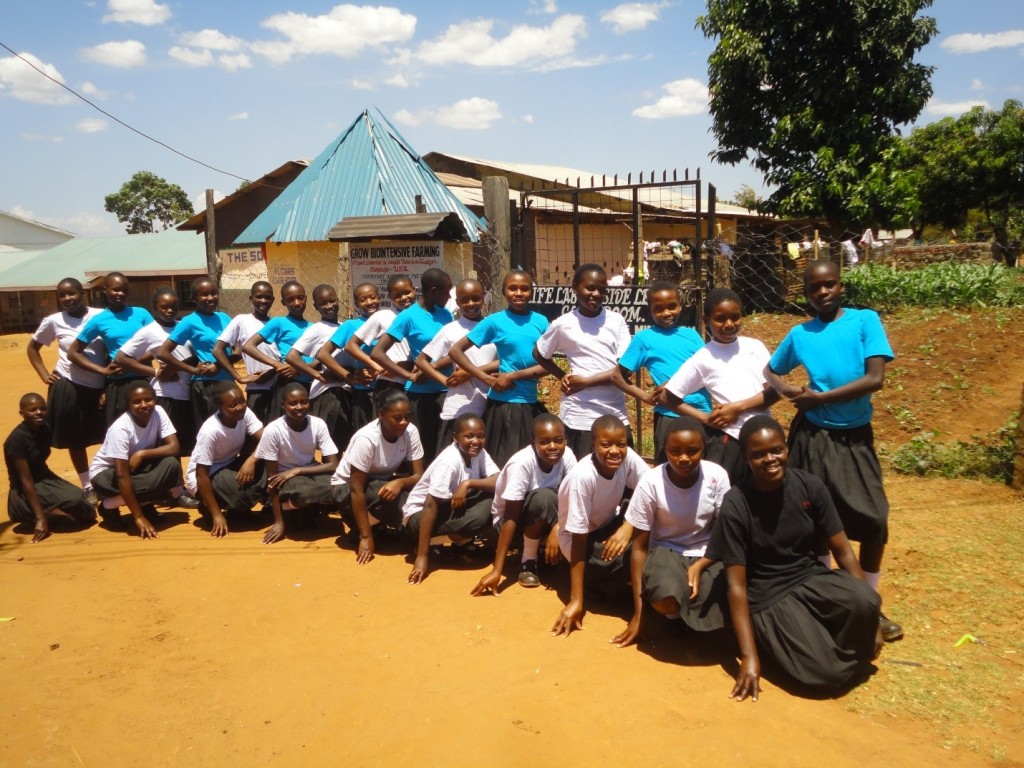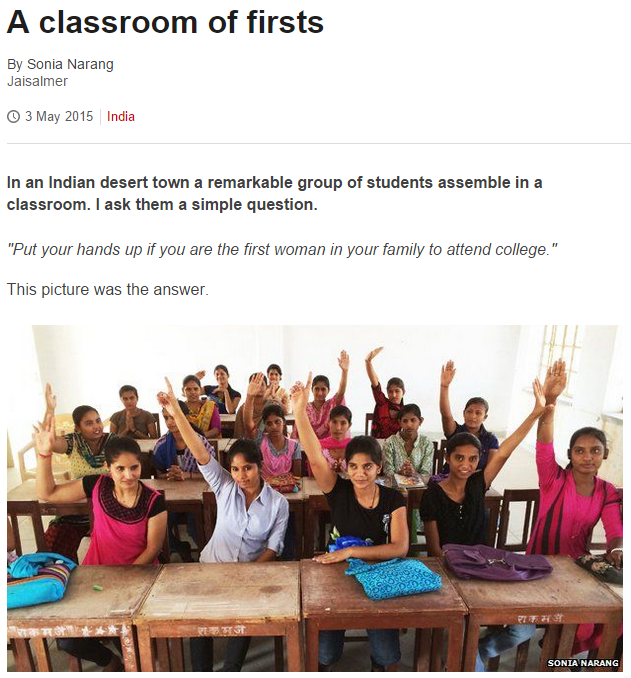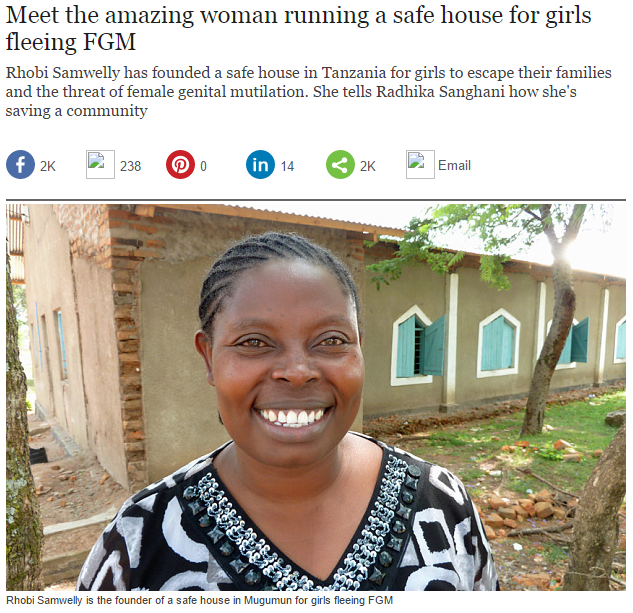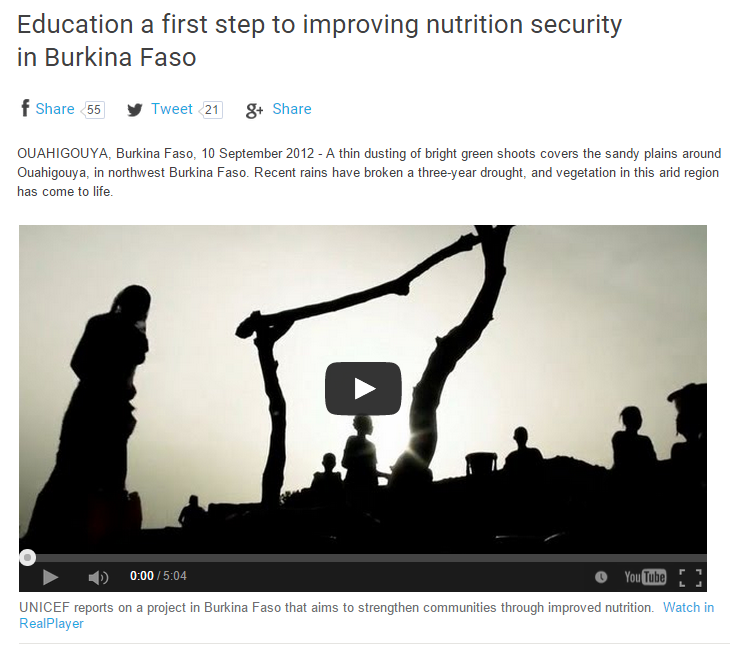At the outset, this article does not claim erudition on the vast subject of the importance of girls’ and women’s education in the 21st century. Nor is it an endless ramble of facts around women’s education for the reader to digest, like the fact that if all mothers had primary education, there would be 15% fewer child deaths in the world. This post is largely written because of two reasons:
One: Mother’s Day is around the corner. And while this day in May, which has been set aside to acknowledge mums’ indelible contribution to family life, prosperity and happiness, has increasingly become about getting her a card or trinket as a token of appreciation, I felt that on this day more than ever we need to revisit a sobering fact – millions of mothers around the world aren’t able to do their best because of lack of access to education, maternal health care and domestic abuse. Mother’s Day shouldn’t only be an acknowledgement of the perfect mum, but also the imperfect one who struggles in the face of adversity, and the things that are being done for her so she can overcome challenges and become a fully realized mum, so to say. Two: I recently came across some thoroughly inspirational stories of women who have striven for their right to be educated amid entrenched societal inequality, and of organizations that support their efforts. And this post is mostly about these examples that exemplify the cascading impact an educated woman can have in society.
Fact: Girls with higher levels of education are less likely to get married at an early age
The BBC recently featured the story of Rama Arora, the first and only woman college professor at an all-girls’ college in the Indian city of Jaisalmer. Ms. Arora, who got married at the age of 20, kept a secret from her in-laws who didn’t believe in the right of women to be educated post-marriage – for 6 years after her marriage, Ms. Arora hardly slept at night because she was busy doing coursework to earn a PhD in sociology. Today, with 25 years’ worth of teaching experience behind her, she’s a figure of inspiration and a confidante for many young girls who study at MLS Government Girls’ College. For students like Maravo Solanki, whose sister got married at the age of 14, early marriage is not on her horizon. An independent-minded young woman, her focus is on studying further to become a police officer like her dad. Ms. Arora and her impact on so many young minds who will choose to walk a path different from the accepted norm, is a prime example of the ripple effect education and open dialogue can have on communal change.
Fact: Educated women are less likely to die in childbirth
It’s no surprise that the highest rates of maternal and infant mortality are in regions that follow the horrifying practice of female genital mutilation, commonly called ‘cutting’ (quick facts on FGM here). A safehouse in Mugumu, Tanzania run by Rhobi Samwelly offers protection to young girls when they flee their home when pressured to undergo FGM during the ‘cutting season’. Ms. Samwelly, who herself suffered mutilation as a child and nearly bled to death, strongly advocates education and vocational training among the girls who enter the safe house. 14-year-old Veronica, who was one of those who managed to escape to Ms. Samwelly’s safe house narrated her story on a BBC 4 interview – ‘My father said I should have FGM so [I could be married] and get a bigger dowry. Those 5 cows [in dowry] could be sold to pay for my younger brother’s boarding school. I said “you should allow me to go to secondary school first then I might be successful in the future and help the rest of the family!”.’ The segment also spoke of women who sided with their husband’s decision to force their daughter to get FGM. While the case of Ms. Samwelly’s battle against FGM is focused primarily on the hard struggle in overcoming a societal mindset and protecting young girls from a brutal practice, the take-away no doubt is that education of not only men, but also of women and young girls would increase the capacity for the community to battle debilitating societal taboos.
Fact: Mothers’ education improves child nutrition
As of 2013, UNICEF estimated that 100,000 children under the age of 5 years suffer from malnutrition in the East African country of Burkina Faso. But as a senior official at UNICEF says, ‘malnutrition is not really about lack of food. It’s about how much a mother knows about feeding a young child, and this is linked to the whole issues of educated mothers.’ Educated women are more likely to ensure that their children get the best possible nutrients in their diet to prevent health problems and are more acutely aware of hygienic practices at home. Through local, community-led NGOs mothers are enrolled in nutrition classes in small villages where they are being taught not to rely wholly on staple grains like millet, but to incorporate vitamin-rich fruits and veggies in their child’s meals. Another critical area around which mothers need greater education is breastfeeding, as many mothers in Burkina Faso tent to substitute breast milk with water or gravy. The project that involves local theater groups enacting plays that encourage breastfeeding has reached over 14,500 villages, reaching an estimated 75,000 pregnant mums and several lactating mothers.
And finally, we have a story to share about a marvelous young woman who will be attending Lenana Girls’ High School in Kitale, Kenya operated by our partner Common Ground for Africa. If you’ve followed some of our work, you probably know that Lenana Girls HS provides vulnerable girls high quality skills-based education and personal mentoring along with a safe place to stay with clean bedding, fresh towels and hot meals every day. During a student selection at Makueni County, Joshua Machinga and the Lenana team met Vivian Wanza, the 4th born among 7 siblings, whose father disappeared leaving the family in the hands of his jobless wife. Vivian’s mother earns an income of Kshs. 1, 000 (US$ 12) per month from the sale of ropes. Her two siblings are in local secondary schools, and the third one dropped out of school since the family couldn’t afford school fees. Being a girl, Vivian was the mom in the household taking care of her siblings. In her interview with Joshua and the team, Vivian expressed that if she could change her community, she would bring-in HIV-AIDS testing centers, bring ARVs to the hospitals to ensure that that there would be fewer deaths because of HIV-AIDS in her community, and that she’d like to plant a community garden in her neighborhood. She also claimed that she “wasn’t a leader.” When the panel asked her about her home life she said, that she teaches her family about cleanliness, organization, living in a clean compound, and about the importance of education. For Joshua, that was being a leader indeed. Vivian’s story was so compelling to the Lenana HS staff that they broke a rule and told her that they’d be happy to give her the chance to attend secondary school. With young women like Vivian getting the opportunity they so long for (and deserve!), there is a lot to be hopeful for in the struggle to effect social change through women’s empowerment.

Lenana Girl’s High School has just completed student selection for our first Form 1 (first year) class



